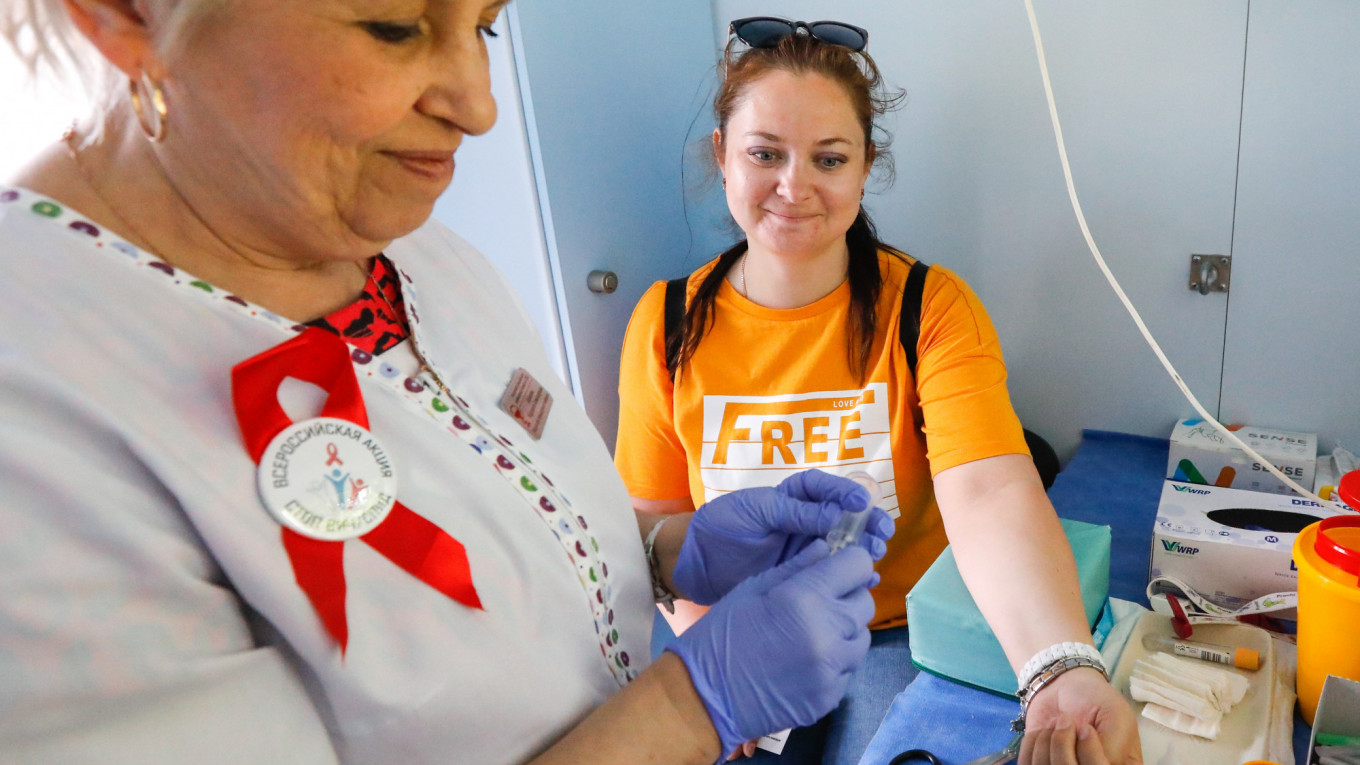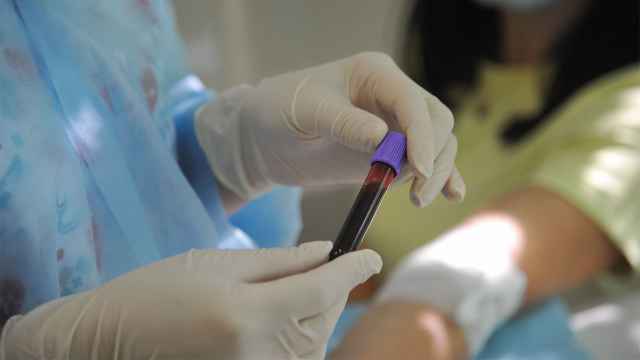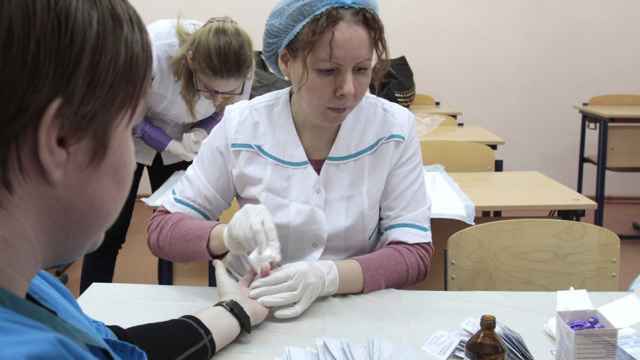Russia’s draft HIV prevention strategy doesn’t fully comply with World Health Organization (WHO) guidelines and is not available for public discussion, the Kommersant business daily has reported.
More than 1 million people in Russia live with HIV and a record 37,000 people died from HIV-related illnesses in the country in 2019.
Russia’s new 10-year HIV prevention strategy differs little from the one that expires this year, experts told Kommersant. The current strategy has been criticized for prioritizing “moral values” and urging the avoidance of bad habits, as well as being vaguely worded.
The new draft HIV prevention strategy aims to “prevent the spread of HIV in Russia by permanently reducing the number of new infections… until it’s no longer a threat to public health by 2030,” according to Kommersant.
Authorities plan to achieve that goal by raising awareness, improving access to antiretrovirals and offering a multidisciplinary approach to treatment, the paper reported.
In primary prevention, the 2030 strategy gives priority to an outreach campaign that would “reinforce traditional family and moral values” in addition to instilling safe behavior.
“The document looks weak,” Alexei Mikhailov, head of the International Treatment Preparedness Coalition’s monitoring project, told Kommersant.
The strategy does not appear to include the WHO’s guidelines endorsing condom and lubricant use as a prevention mechanism, the coalition’s expert Denis Godlevsky said.
Russia’s Health Ministry defended its draft program Thursday, saying it “fully complies with international guidelines, including those of the WHO.”
“The Russian Health Ministry will be ready to answer all your questions after the draft strategy gains interdepartmental approval,” it said, according to the state-run TASS news agency.
A Message from The Moscow Times:
Dear readers,
We are facing unprecedented challenges. Russia's Prosecutor General's Office has designated The Moscow Times as an "undesirable" organization, criminalizing our work and putting our staff at risk of prosecution. This follows our earlier unjust labeling as a "foreign agent."
These actions are direct attempts to silence independent journalism in Russia. The authorities claim our work "discredits the decisions of the Russian leadership." We see things differently: we strive to provide accurate, unbiased reporting on Russia.
We, the journalists of The Moscow Times, refuse to be silenced. But to continue our work, we need your help.
Your support, no matter how small, makes a world of difference. If you can, please support us monthly starting from just $2. It's quick to set up, and every contribution makes a significant impact.
By supporting The Moscow Times, you're defending open, independent journalism in the face of repression. Thank you for standing with us.
Remind me later.






